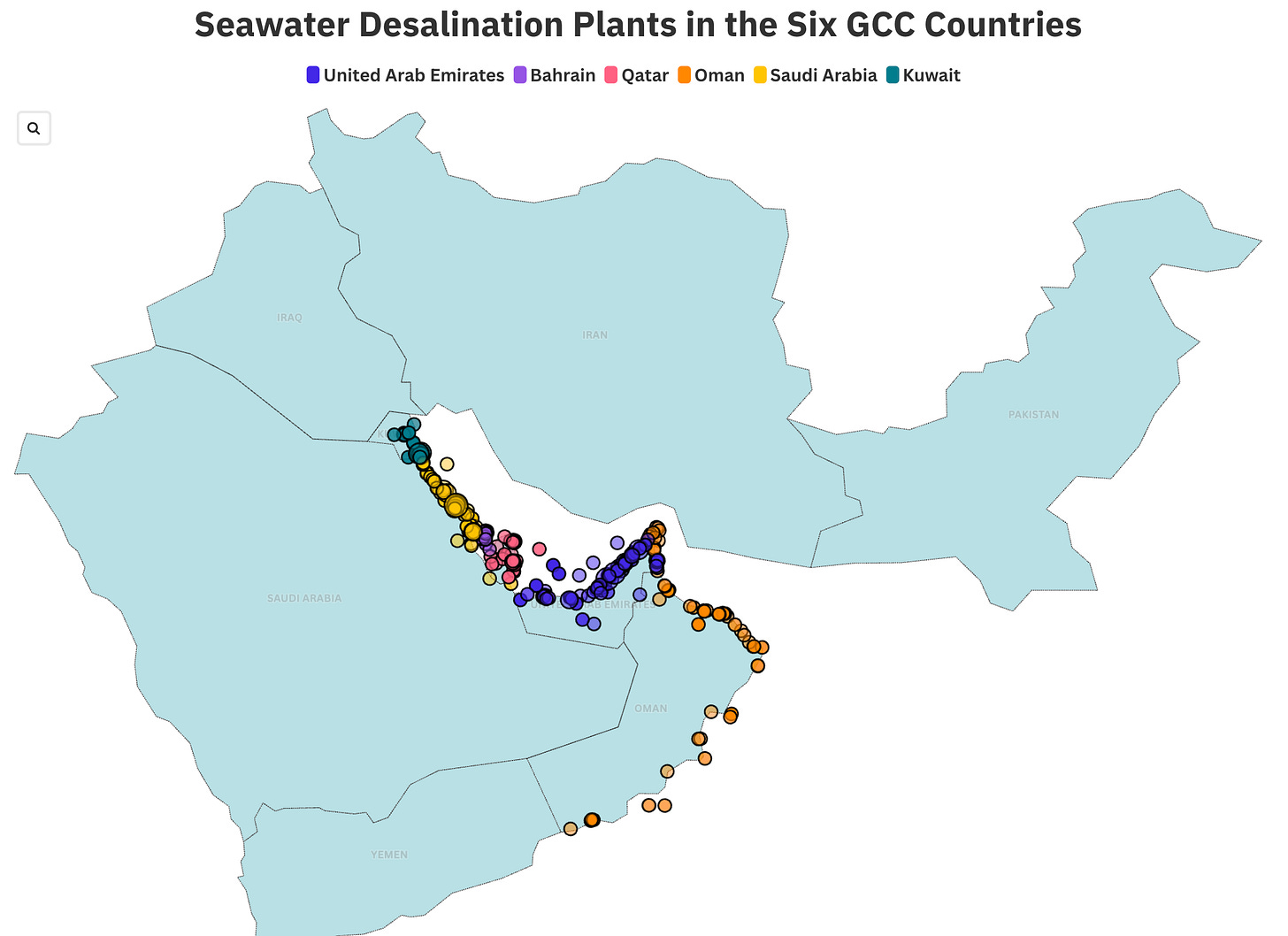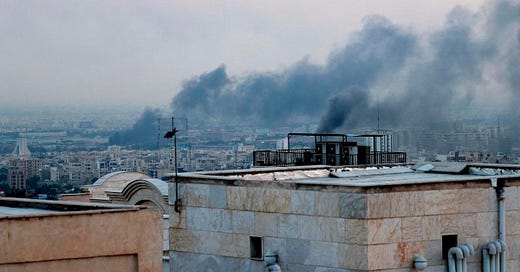Qatar announced it is daily monitoring the Persian Gulf for radiation levels as a result of ongoing the ongoing Iran-Israel conflict.
I spoke with individuals in the Gulf this week about some of the operational scenarios for the current Israel-Iran escalation. The GCC is a major business hub, and much of the development ambitions of the region are linked to the success of GCC investments and projects. Below are some of the general takeaways which we could see playout.
The Gulf’s primary vulnerability is its geography. A nuclear-related incident or nuclear contamination of Gulf waters—whether accidental or intentional—would make desalination plants inoperable because would be rendered undrinkable, even if desalianted. Smaller emirates reliant on the Persian Gulf—UAE, Kuwait, Bahrain, and Qatar—rely almost entirely on desalination. Without it, water shortages would occur within days. Groundwater and rainfall cannot compensate given much of these regions are desert.

If Gulf desalination systems fail, Saudi Arabia—which maintains Red Sea water infrastructure—would become one of the only viable suppliers of fresh water. Trucking water overland would be logistically difficult and slow, but would be one of the remaining critical lifelines to the rest of the peninsula.
Saudi Arabia would also face pressure to support regional supply chains to ensure food and essential goods reach the smaller Gulf states. Most GCC countries import around 85 percent of their food and rely heavily on ports and airports. If these are disrupted, shortages would begin within days. While strategic reserves exist, they are not designed for prolonged, multi-country emergencies. Riyadh would be expected to provide both aid and logistics support under significant strain.
A regional war may also for the closure of Gulf ports and airspace due to missile threats or air defense saturation. Commercial flights could halt for an indefinite period. This would trap millions of foreign nationals and migrant workers in high-risk areas. Land evacuation through Saudi Arabia would become one of the few options. Border infrastructure is not designed for mass civilian movements, and this could create transport bottlenecks. Saudi Red Sea ports such as Jeddah and Yanbu would be critical for onward evacuation, but these routes could also face risk if the conflict expands to the Red Sea.
Coffee in the Desert is an initiative of Rihla Research & Advisory LLC. If you or your business are seeking further research, support, and a deeper dive, please reach out to me at Jesse.Marks@rihlaadvisory.com or visit us at our website.




